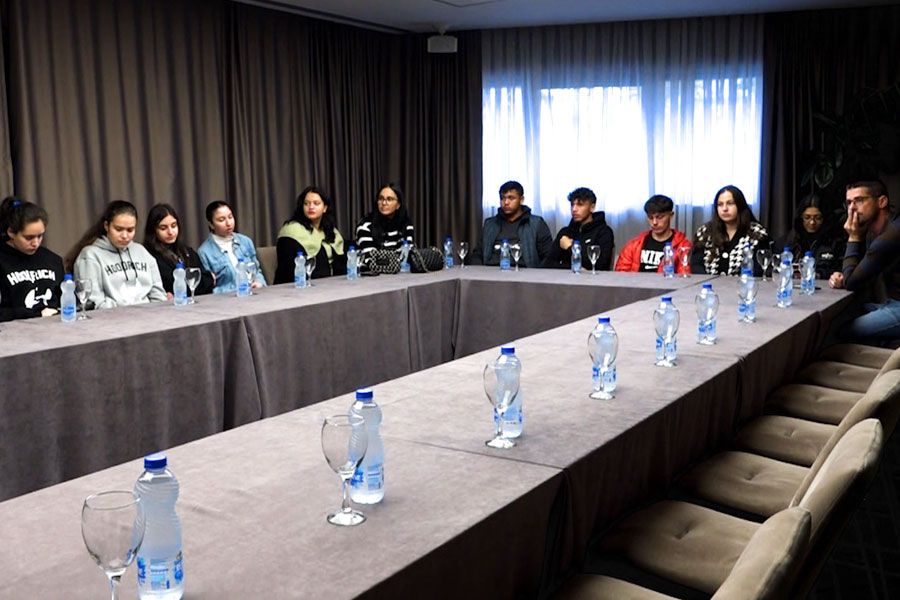“Deep fake” content, artificial intelligence, fake news and those with malicious intent are considered to be a growing trend, becoming “sworn enemies” of the truth. Meanwhile, the need for young people to be informed about this phenomenon is growing more and more.
This was said in today’s training, where over 20 students together with their teachers from the Roma, Ashkali, Egyptian and Bosnian communities, from secondary schools in Peja, were trained on media education.
In this regard, young men and women from these communities commented on the importance of this training, while they expressed that they have received useful information to develop critical thinking about what the media serves them.
The student from the Egyptian community, Arjentin Elezaj, who attends the 12th grade of the “Ali Hadri” economic school, says that during the training, he was impressed by how “deep fake” can manage to manipulate the face and voice of someone else. He added that there will be critical thinking from now on about the photos and videos circulating in the media.
“They impressed me about the information they provided regarding misinformation, disinformation and fraud in the media… Through artificial intelligence, for example, we can use someone else’s voice and face to deceive others in the media… We can share the information we have received with our friends… The part of the group discussion that we did was attractive. I felt good in the group and we worked very well… This information is useful for us to think critically about the pictures and videos we see in the media”, said Elezaj.
Meanwhile, the 12th grade student at the “Bedri Pejani” Gymnasium from the Bosnian community, Lejla Muric, expressed that she liked the discussion within the training, sharing different examples about disinformation.
Muric emphasized that after the training she learned that “not everything we see is true”.
“The new things we learned about misinformation and disinformation, also, the “deep fake” effect that we mentioned, makes me think critically about what we watch. I was also impressed by the discussion that we all took part in to tell about the examples we have seen ourselves…During the training we also talked about artificial intelligence, which is always growing, where we understood that everything we see is not true”, emphasized Muric.
Even the professor of Electronics from the Bosnian community, Ramo Mahmutovic, said that students and teachers from the communities need as much training as possible about the trend of false information. He emphasized that young people today are very exposed to erroneous information.
“We had a good time in training. The impressions are very good. One of the best impressions was how and where to get safe information from… Together we have communicated about media disinformation that happen, misinformation on their part, misinformation of the population in general, changing opinion and so on. … In terms of training, it is very worthy and we hope that in the future we will have this kind of training, because today’s youth receive a lot of information but it is false information”, emphasized Mahmutovic.
The manager of this project, Fadil Miftari, emphasized that the main goal is raising awareness of young people so that they are able to protect themselves from false information.
He added that the young people participating in this training were excited by the information they received on how to avoid absorbing unsafe information.
“Firstly, the main goal is to make young people aware of how to get protected from disinformation, misinformation and learn about what other ways of giving and absorbing incorrect information are. In today’s world, there is an extremely high possibility that various mechanisms will spread false information. The main goal of this initiative or project is raising awareness of young people to be able to protect themselves from disinformation… This discussion today is the first of the second part of trainings. Last year’s trainings were of this nature. Today’s discussion seemed very meaningful to me. Even though young people, the majority, use digital devices today and are exposed to the risk of absorbing unsafe information, here I saw that they were excited after receiving enough information on how to protect themselves and avoid absorbing unsafe information,” Miftari said.
The project “Media education against disinformation for non-majority communities in Kosovo”, is supported by the Embassy of the United States in Prishtina.









